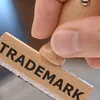Why tech startups need their trademark registered
Register your startup’s trademark. Protect your brand as its infringement constitutes upto 50 percent of IP litigations in the Delhi high court.
As the phrase, “Better the presentation, better the sales,” takes a life of its own in one’s approach to business, every small-to-big company is keen on establishing and maintaining a “brand-name” and a “brand-value” that towers over the milieu. Trademarks are that ‘x’ factor which enhance the creation and promotion of any brand. They are intellectual properties comprising of a creative and recognisable sign, design, or expression which identifies products or services of a particular source from others.

India, as the second-most populated nation, is undergoing a fascinating transformation in the trademark space. It is interesting to note that the Delhi high court witnesses almost 60 percent of all forms of IP litigation cases every year, and on an average, almost 50 percent or more are related to the infringement of a trademark, trade dress or passing off.
The need to protect a brand legally and commercially, to guarantee that the new creation is not a twin to anything already in the market from a legal standpoint, is fundamental for a brand’s uniqueness, development and achievements in the long run. In essence, a trademark prevents goods or services offered by an organisation from infringement or damage to reputation by any another company. A trademark is a unique word, symbol, letter, name or logo used to recognise one’s goods from another’s. Prior to registration, a trademark search is conducted to identify any other organisation which possesses a similar trademark or registered name, which can confuse the public.
Trademarks are of various types - product marks attached to goods (Amul’s logo), service marks (Hilton Hotels), collective marks (the mark “CPA,” used to indicate members of the Society of Certified Public Accountants in many countries), certification marks (BIS hallmark used to certify the purity of gold jewellery), shape marks (the shape of a Coca Cola bottle), pattern marks and sound marks (the tone followed by a woman speaking the company’s name used by AT&T).
Often confused as being similar, a service trademark is similar to a general trademark, though it protects the services offered by a company instead of its goods.
The strength of your trademark depends on the category being used, and it is important to design trademarks that offer stronger protection. Fanciful or arbitrary marks are the strongest category of trademarks that provide the strongest protection such as the one used by Apple Inc.
Suggestive marks are another class of marks considered the strongest after arbitrary marks, and use the qualities or attributes of goods or services. A generic mark that involves something used by people on a daily basis cannot be registered as a trademark, and therefore can’t be protected. For instance, the term “automobile” is a generic mark. Descriptive marks include colour, smell or ingredients of goods or services. The registration of a trademark provides additional strength to a business as it can propel the brand towards steady growth.
Trademark registration
An unregistered mark is one that is not registered under the Trade Mark Act and its use can be represented by a company by using the TMadjacent to the logo.
The Indian Trademark Act says,
“A trade mark shall not be registered if, or to the extent that, its use in India is liable to be prevented -
(a) by virtue of any law in particular the law of passing off protecting an unregistered trade mark used in the course of trade”
If a company does not register its mark as a trademark, it is probable that a third party could register a similar mark. A possible litigation can ensue between the two companies involving the use of the mark in the future too.
A classic example of this is the recently concluded Trademark feud within the Haldiram family – wherein the sons of Rameshwar Lal tried to set up shop at Karol Bagh in Delhi, threatening the business of Haldiram (India) Pvt. Ltd., New Delhi originally entitled to the rights of using the name for business in all the territories except West Bengal.
The later filed an application against the former claiming that not just in Delhi, they wrongfully registered their name in Kolkata for the same back in 1980. After a long battle between the parties, the IPAB in 2013 ordered the mark (owned by Haldiram, Kolkata) to be cancelled. Other prominent cases include “DM entertainment v Baby Gift House and ors.”, “Milmet Oftho Industries & Ors v. Allergan Inc.”, “The Coca-Cola Company Vs. Bisleri International Pvt. Ltd” and “Cadila Health Care v Cadila Pharmaceutical Ltd” all of which elucidate how trademark protection goes a long way in protecting a company’s uniqueness and reputation.
In principle, an unregistered trademark can be protected by common law, i.e. by usage without registration. Yet, the common law trademark’s limitation is that it can only be used in the geographic area where the business is located. Also, a passing-off action arises when an unregistered trademark is seen as misleading to the public by the proprietor of the said trademark in relation to the goods and services of the trademark owner.
How can one register a trademark?
The main steps to register a trademark in India includes the phases of filing, examination, publication, restriction, and publication after grant and renewal. After the trademark application is recorded, it is inspected by the registrar as per the arrangements of the Trademark Act. After the best possible examination, the application is published in the Trademarks Journal. Following the publication, any individual can oppose it by documenting a notice of restriction with the registry. The application then continues to the publication recording either as a “no notice of restriction” against the trademark or an opposition filed and ruled in the favour of the applicant. The imprint is enlisted for a period of 10 years from the date of documenting.
Importance for entrepreneurs and startups
A registered trademark provides exclusive rights to the registered owner - the rights to use the mark on one’s goods or services, or on advertisements of goods or services. Registered trademarks should be distinctive in terms of colour, trade dress and words in order to avoid confusion and legal hassles. A recent case study highlights this - Larsen and Toubro Ltd. Vs Lachmi Narain Trades in 2008, saw the appellant filea civil suit against Lachmi Narain Trades for using the trademark ‘LNT/ELENTE’. The appellant used the trademark ‘LandT’ for marketing its goods and services. As per the appellant’s contentions, the respondent’s use of the abbreviation ‘LNT’ was incorrect, as it capitalised on the appellant’s goodwill. After hearing arguments on the application, the court decided that Lachmi Narain Trades was to be restrained from using the word ‘LNT/ELENTE’ but allowed to use ‘Lachmi Narain Trades’ as full for its trade growth.
How startups can learn
Although, avoided by many startups during the initial stages as an additional expanse, trademarks are extremely critical for startups as it becomes important for them to have a separate face in the market once the needle starts to point towards the profit mark. Specifically, for virtual businesses who do not own a brick and mortar office, the brand value resides in the look and feel of their online presence (ie. website), and name of the company, making trademarks extremely important for such businesses.
The final word
While organisations might see trademark filing as an additional cost, yet a carefully crafted IP strategy can help optimise the ever-present cost vs benefit balance.
And as the famous saying goes, “It’s difficult to build a name, it’s even more difficult to keep it there.” The fact that this realisation has started to dawn upon the industrial world is evident from the fact that the Indian Trademark office saw roughly 42 percent overall increase in the number of Trademark applications filed in the past five years. It is noteworthy that trademarks from domestic applicants have risen by roughly 48 percent within the same period. Also, once popular, a registered trademark works as an important factor in spiking the sales of a company as can be seen in the case of Apple Inc.’s products. So, every company (big or small) ought to give proper attention to its logo, and get it trademarked because the names that last are the ones that stand apart from the crowd.
(Disclaimer: The views and opinions expressed in this article are those of the author and do not necessarily reflect the views of YourStory.)
(Edited by Suruchi Kapur)









